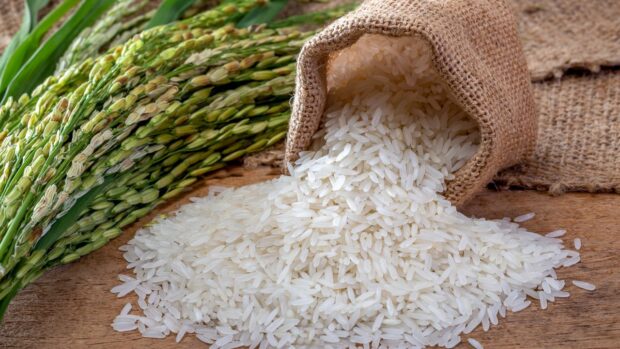DA-BPI says PH looks ready to lift rice price cap, but President has last say

Rice is the top staple food of Filipinos. INQUIRER.net stock images
MANILA, Philippines — Philippines appears to be ready to lift the rice price cap, according to Department of Agriculture – Bureau of Plant Industry (DA-BPI) Director Glenn Panganiban.
Panganiban listed three indicators from DA that could serve as a basis for lifting the rice price cap, specifically falling rice prices, increasing local production of rice, and lowering global prices of rice.
“Yun ang indication ano. From our parameters naman, mukhang ready na. But of course, it’s all upon the President to decide on it. Ang amin lang, and this is the instruction from the President from day one, is to really support our farmers, the local produce,” said Panganiban in a Palace briefing.

(That is the indication. From our parameters, it looks ready. But of course, it’s all upon the President to decide on it. On our end, and this is the instruction from the President from day one, is to support our farmers, the local produce.)
READ: Bongbong Marcos orders price caps for rice at P41 to P45 per kilo
Pressed if DA-BPI categorically recommends the lifting of the rice price cap, Panganiban said that it is only up to President Ferdinand Marcos Jr., who is also the concurrent Agriculture Chief.

READ: Rice price cap ‘going as well as we can expect,’ says Bongbong Marcos
The DA, Department of Trade and Industry, National Economic and Development Authority held a sectoral meeting with Marcos to discuss the possible indications of when to life the price cap.
Asked if the DA-BPI thought the rice price cap was still necessary, Panganiban only deferred to the President, saying it was only his decision.
“Of course, all of the decisions that should be made should be with the complete staff work. So we are just verifying so that we can make sure that when a decision arrives, everyone will benefit from it,” Panganiban said in a mix of English and Filipino when asked what was preventing the government from lifting the price cap.
Marcos ordered the rice price cap in September to control the rampant rice prices, which he attributed to rice smugglers.